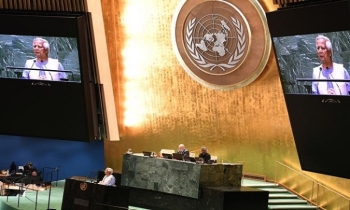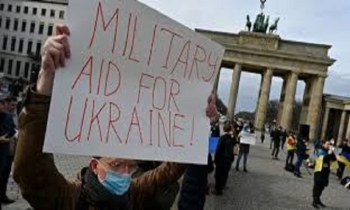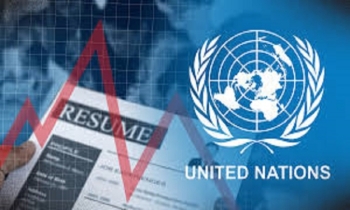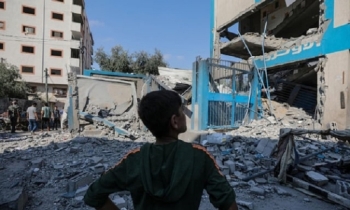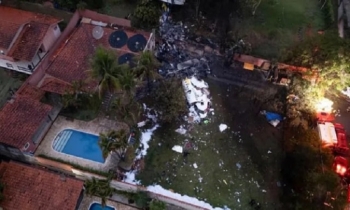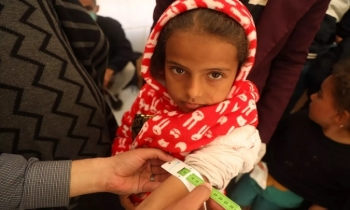UN launches $1bn appeal for aid as death toll in Turkey-Syria crosses 41,000
BI Desk || BusinessInsider
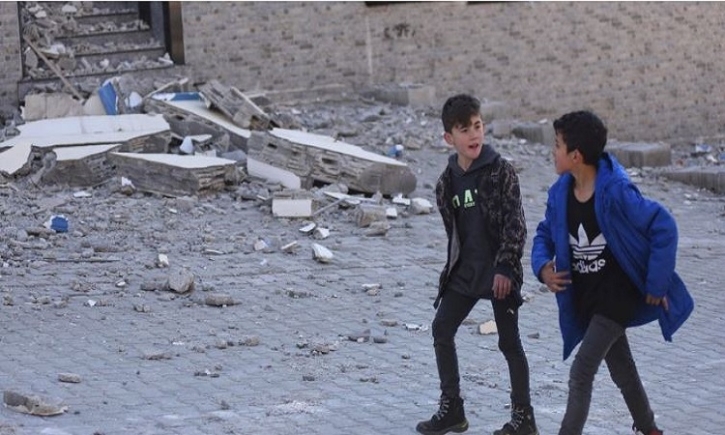
Photo: UNICEF/Özgür Ölçer Two boys walk through the earthquake damaged streets of Kahramanmaraş, Türkiye.
The United Nations has launched a $1 billion appeal to scale-up aid operations in Turkey as the death toll from the cataclysmic earthquake that has devastated parts of Turkey and Syria exceeded 41,000 on Friday, according to international media.
UN Secretary-General António Guterres on Thursday came up with the announcement and urged the international community to step up and fully fund the response effort to assist more than five million people affected by the earthquakes last week, the largest to hit the country in a century.
The UN funding, which covers a three-month period, will allow aid organisations to swiftly ramp up their operations to support Government-led response efforts in areas that include food security, protection, education, water and shelter.
“Turkey is home to the largest number of refugees in the world and has shown enormous generosity to its Syrian neighbors for years,” Guterres said.
“Now is the time for the world to support the people of Turkey, just as they have stood in solidarity with others seeking assistance.”
Shock and devastation
The UN’s Humanitarian Affairs and Emergency Relief Coordinator, Martin Griffiths, also called for countries to support the appeal.
“The people of Türkiye have experienced unspeakable heartache,” said Mr. Griffiths, who visited the country last week.
“I met families who shared their stories of shock and devastation. We must stand with them in their darkest hour and ensure they receive the support they need,” he added.
A once-in-a-generation disaster
The UN and partners have been rushing to support Türkiye and neighbouring Syria in the wake of the devastating earthquakes that struck on 6 February.
More than nine million people in Türkiye alone have been directly impacted by the once-in-a-generation disaster, which has left 35,000 people dead, according to latest figures from the Government.
The earthquakes struck at the peak of winter, leaving hundreds of thousands of people – including small children and elderly people – without access to shelter, food, water, heaters and medical care in freezing temperatures.
47,000 buildings have been destroyed or damaged, including schools, hospitals and other essential services.
Thousands of people have sought refuge in temporary shelters across the country. Many families have been separated, and hundreds of children are now orphaned or unable to be reunited with their parents.
Refugees also affected
As the UN chief noted, Türkiye also hosts the world’s largest number of refugees.
Some 3.6 million Syrians have found a safe haven there, along with nearly 320,000 people of other nationalities, according to the UN refugee agency, UNHCR.
More than 1.74 million refugees live in the 11 provinces impacted by the earthquakes.
Wide-ranging support
The UN is coordinating the operations of thousands of search-and-rescue personnel in five provinces – Adiyaman, Gaziantep, Hatay, Kahramanmaraş and Malatya – and humanitarian organizations have begun relief operations in the hardest-hit areas, in support of the Government-led response.
Together with partners, the UN is delivering hot meals, food, tents, warm winter clothing, blankets, mattresses and kitchen sets to people in need and dispatching medical supplies and personnel to affected areas.
Additionally, psychosocial support is being provided, and child-friendly spaces and safe spaces for women are being established.
Syria aid delivery continues
This week also saw the launch of a nearly $400 million appeal for Syria, where aid delivery from across the border with Türkiye is continuing.
On Wednesday, 22 trucks carrying items from the World Food Programme (WFP) and UNHCR crossed into the northwest via the Bab Al-Hawa crossing, UN Spokesperson Stéphane Dujarric reported in his daily briefing from New York.
Two additional trucks carrying tents provided by UNHCR entered through another crossing, Bab Al-Salam.
Dujarric said shelter needs are the top priority among displaced people in the region, where many homes have collapsed in the aftermath of the earthquakes.
More than 8,900 buildings are completely or partially destroyed, leaving 11,000 people homeless. Other priorities include food, cash assistance and supplies to cope with the harsh winter weather.

